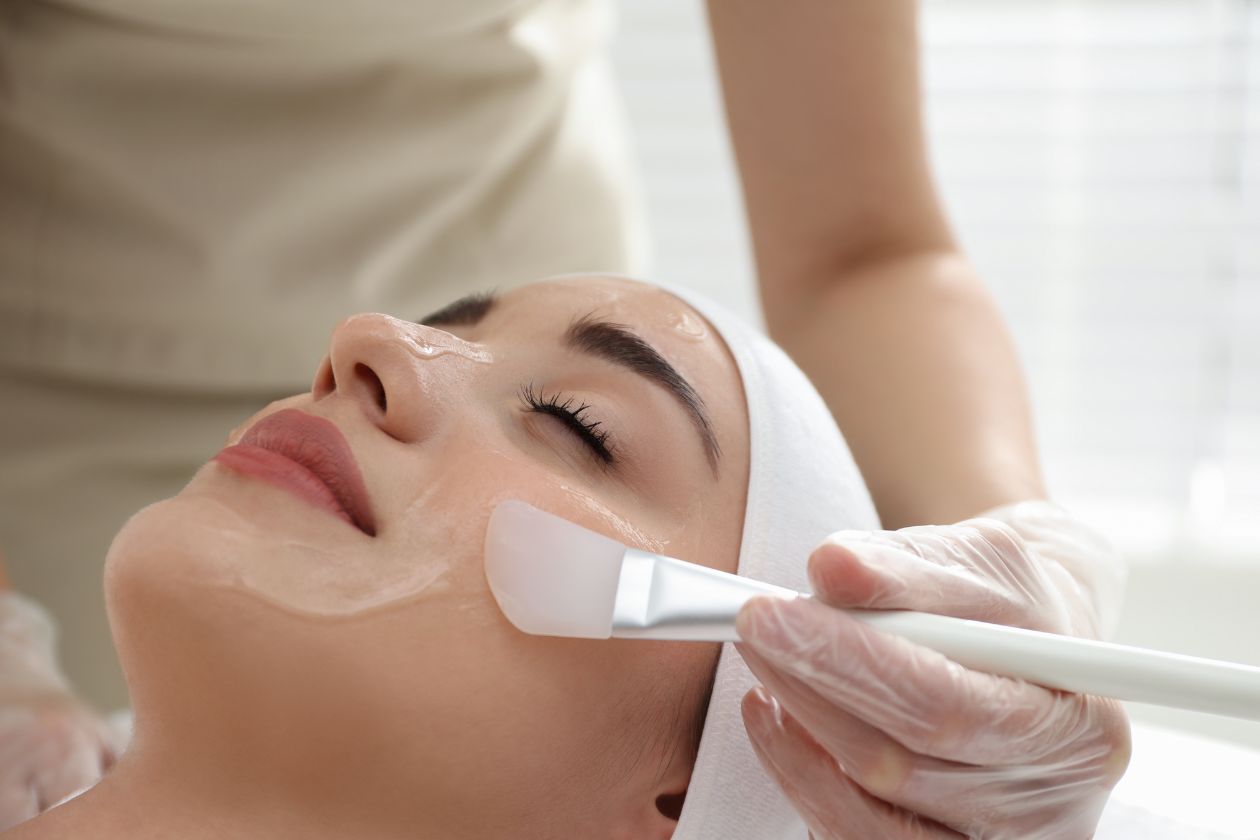Exfoliating once or twice a week helps remove dead skin from your epidermis, allowing new skin to shine through while removing dirt and debris. However, there are two different kinds of exfoliants: chemical and physical. Both are formulated and work very differently, meaning one will not work for every skin type. To help you decide which method of exfoliation suits you best, this article will review chemical versus physical exfoliation.
Table of Contents
What Is Chemical Exfoliation?
While it may sound scary, chemical exfoliants work by using enzymes or acids to break down the bonds between cells, but the acids won’t harm your skin when used correctly. At worst, you may see some irritation if you don’t pair your exfoliant with a moisturizer. Most chemical exfoliators on the market include Alpha Hydroxy Acids (AHAs) or Beta Hydroxy Acids (BHAs). AHAs are more effective at treating pigmentation issues, and BHAs are better for getting rid of oil and acne due to their anti-bacterial properties.
While AHAs work best on dry skin, you want to ease into using chemical exfoliants. All chemical exfoliants make your skin more susceptible to dryness, so always use a high-quality moisturizer after exfoliating.
What Is Physical Exfoliation?
Physical exfoliation is any product designed to manually remove dead skin cells. This can include home products such as loofahs, sponges, brushes, body and facial scrubs, or professional methods like dermaplaning. Physical exfoliation is best suited for people with less sensitive or oily skin. This method of exfoliation can make your skin susceptible to microtears, especially when using scrubs with particles that are too sharp or large.
When using a physical exfoliant, make sure the particles are finely ground, and avoid products with ingredients like nut shells, pits, sharp rocks, or ground seashells. If you’re using a tool, make sure it is intended for exfoliating purposes and designed to go on your face. Exfoliating too much is one of the most common mistakes people make when exfoliating and can cause damage and increase oil production, so only exfoliate once or twice a week.
Which Is Better?
In truth, no exfoliator is necessarily better than the other. Like any skincare product, what works for one person may not work for another. While chemical exfoliants are generally gentler and run less of a risk of causing irritation, they may not work for oily skin. While physical exfoliation can be misused, dry skin can’t typically handle the manual removal of dead skin cells. It all depends on your skin type and skincare goals.
Knowing the differences between chemical versus physical exfoliation means you’re better equipped to give your skin the care it needs to stay healthy and start glowing. Remember to always ease into any new skincare product by testing it under your jaw or on the back of your hand, and monitor your skin for adverse reactions.




